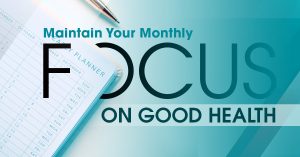 To ensure that you’re doing all that you can to maximize high-quality, restful sleep, following are some tips for counting sheep like a rock star:
To ensure that you’re doing all that you can to maximize high-quality, restful sleep, following are some tips for counting sheep like a rock star:
- Maintain regular sleep habits: Experts in sleep medicine like to call this “sleep hygiene”, the ways in which we ensure refreshing sleep night after night. Go to bed and get up roughly the same time seven days a week, 365 days a year. Keep your bedtime routine consistent; it might include downtime, teeth-brushing, a warm bath, herbal tea, whatever you need to do to wind down and signal your body that it’s time for sleep. We do this with our young children but often forget about our own bedtime rituals. They work wonders in helping us to feel ready for slumber.
- Identify and manage factors hostile to sleep: These can be any number of things, from prescription medicine to caffeine, alcohol, and nicotine. Both caffeine and nicotine are stimulants. Anyone who still smokes should adopt a plan to quit, for smoking alone will increase your risk of everything under the medical sun. As for caffeine, try to avoid it after 2 p.m. This will give your body time to process the caffeine so it doesn’t impact your sleep. Some people, however, are extra sensitive to caffeine, so you may want to back up this time to noon or move to less-caffeinated drinks. Ask your doctor or pharmacist about any potential sleep repercussions for medications you take on a routine basis. Be aware that lots of over-the-counter medications can contain sleep-disrupting ingredients, too. Popular headache drugs, for instance, can contain caffeine. Alcohol, while creating a sedative effect immediately after consumption, can disrupt sleep while it’s being processed by the body; one of the enzymes used to break down alcohol has stimulating effects. Alcohol also causes the release of adrenaline and disrupts the production of serotonin, an important brain chemical that initiates sleep.
- Time your dinner appropriately: No one likes to go to bed on a full or empty stomach. Find your sweet spot, leaving approximately three hours between dinner and bedtime. Also be aware of ingredients in foods that can be problematic to digest easily before going to bed (everyone is different).
- Don’t eat erratically: Eat on a regular schedule. This will keep your appetite hormones in check. If you delay a meal too long, you will throw your hormones out of whack and trigger the nervous system, which can later impact your sleep.
- Try a bedtime snack: Nocturnal hypoglycemia (low nighttime blood glucose levels) can cause insomnia. If your blood sugar drops too low, it causes the release of hormones that stimulate the brain and tell you to eat. Try a bedtime snack to avoid this midnight disaster. Go for foods high in the amino acid tryptophan, which is a natural promoter of sleep. Foods high in tryptophan include turkey, cottage cheese, chicken, eggs, and nuts (especially almonds). Just watch your portion, however. A handful of nuts might be perfect. You don’t want to devour a three-egg omelet with turkey right before bedtime. Choose wisely.
- Beware of imposter stimulants: You already know that regular coffee will keep you alert, but today caffeine-infused products are everywhere. Also, certain food components such as colorings, flavorings, and refined carbs can act as stimulants, so avoid these, too.
- Set the setting: It should come as no surprise that keeping brain- and eye-stimulating electronics in the bedroom is a bad idea, but people still break this most basic rule. Try to keep your bedroom a quiet, peaceful sanctuary free of rousing hardware (e.g., TVs, computers, phones, etc.), as well as bright lights and clutter. Invest in a comfortable bed and plush sheets. Maintain dim lighting. Cultivate a mood for sleep.
- Use sleep aids prudently: the occasional sleep aid won’t kill you. But chronic use of them can become a problem. The goal is to arrive at sound sleep on a routine basis without extra help. And I’m not referring to earplugs or eye masks here, both of which I approve of as sleep aids; I’m talking about over-the-counter and prescription drugs that induce sleep. Examples include “p.m.” formulas that include sedating antihistamines such as diphenhydramine and doxylamine. Even if they claim to be non-addictive, they can still create psychological dependency. Better to regulate your sleep naturally.
Adapted from Grain Brain by David Perlmutter, MD
Contributor: Dr. Gregg Baron
The statements made in this article have not been evaluated by Health Canada or the U.S. Food and Drug Administration. None of the information presented is intended to diagnose, treat, cure or prevent disease.


